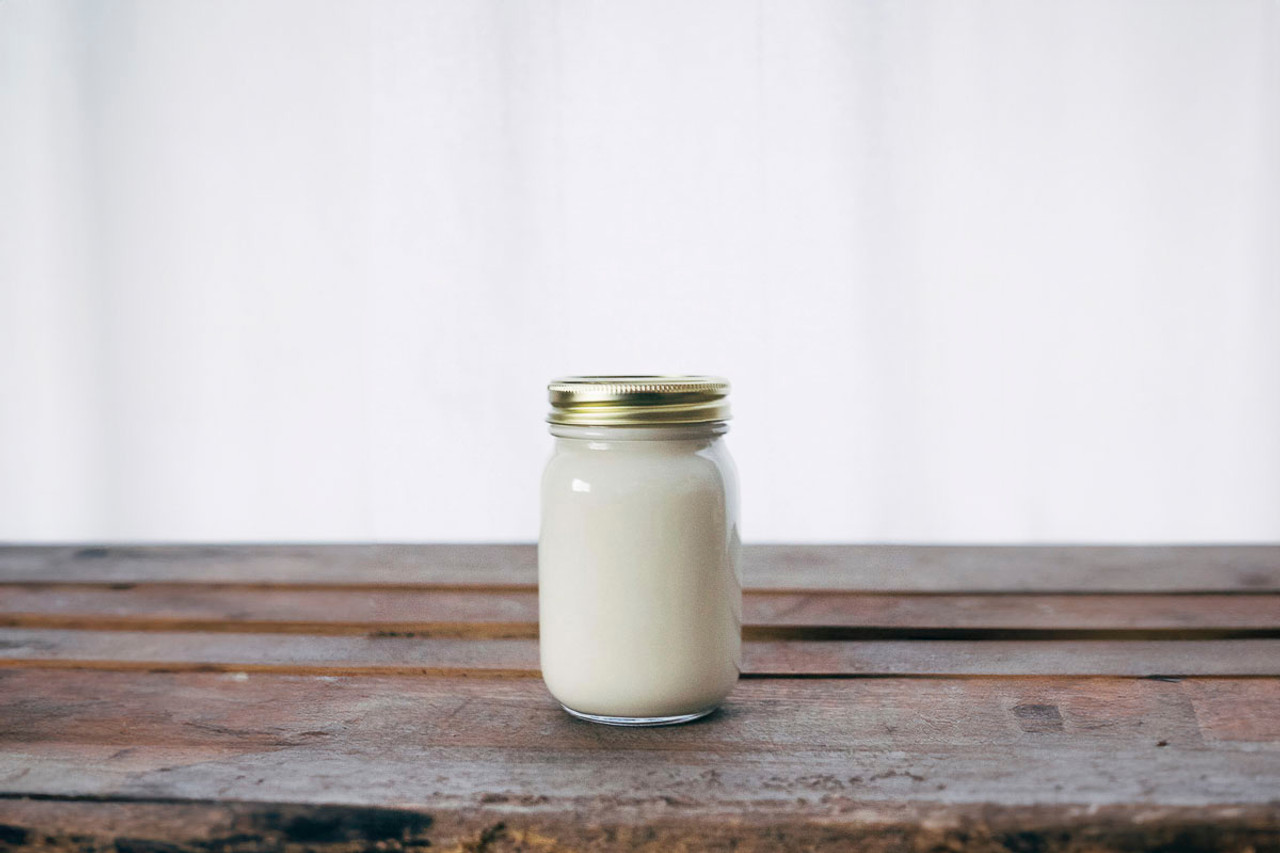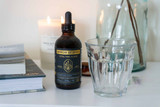Probiotics and Testosterone? L. reuteri and Gut Health Guide
Can Probiotic Supplementation Increase Testosterone Levels?
The Relationship Between Lactobacillus reuteri and Testosterone in Aging Men
The intricate connection between gut health and overall well-being is becoming increasingly clear, with growing attention to how probiotics and fermented foods, such as kefir, may influence hormone regulation—testosterone included. While gut health plays a role in countless bodily functions, the specific link between the microbiome, hormone production (particularly testosterone), and reproductive fitness in aging men represents an exciting area of emerging research.
Probiotics, including Lactobacillus reuteri, have garnered interest for their potential to support testosterone production by bolstering immune function and reducing inflammation. Studies suggest that supplementation with Lactobacillus reuteriATCC 6475 can increase testicular weight and enhance the seminiferous tubules' cross-sectional areas—key structures involved in testosterone production. This particular probiotic strain may also help counteract age-related testicular atrophy and support healthier Leydig cells, the primary producers of testosterone in men (Poutahidis et al., 2014).
Research detailed in Probiotic Microbes Sustain Youthful Serum Testosterone Levels and Testicular Size in Aging Mice examined how supplementing with L. reuteri sustained testosterone levels and improved testicular health in aging male mice. The findings underscore the deep interplay between gut health, hormonal balance, and reproductive fitness.
Looking through the lens of dietary choices, such as incorporating probiotic-rich foods like kefir, this discussion explores the potential role of probiotics in supporting testosterone levels—critical for maintaining reproductive health, muscle mass, energy, and overall vitality in aging men.

The Science of Testosterone and Aging
What Is Testosterone?
Testosterone is a vital hormone found in both men and women, though its levels and roles differ significantly between the sexes. Primarily produced in the testes in men and the ovaries and adrenal glands in women, testosterone governs a wide range of functions. In men, it drives reproductive health, supports muscle mass, bone density, and sperm production, and influences mood and energy levels. For women, testosterone plays a subtler but equally essential role, contributing to libido, muscle strength, bone health, and overall vitality.
While testosterone is often associated with masculinity, it is better understood as a hormone of balance, critical for maintaining physical and mental health across genders.
Understanding Testosterone Decline
The mechanisms behind age-related testosterone decline extend far beyond matters of aesthetics or cultural ideals. Lower levels of testosterone affect more than physical appearance; they directly impact reproductive health, mental acuity, immune strength, and even markers of longevity.
As men age, natural testosterone production slows, often leading to fatigue, reduced muscle mass, increased fat accumulation, and diminished libido. These changes are not just personal—they are physiological, underlining how deeply testosterone influences the body’s ability to function optimally.
Health Costs of Declining Testosterone in Men
The effects of declining testosterone levels are far-reaching, even extending to cardiovascular health. Substantial evidence links low testosterone to an increased risk of cardiovascular disease, including myocardial infarction and stroke. In a large study, testosterone replacement therapy (TRT) was associated with a significant reduction in major adverse cardiovascular events (MACE)—a term that includes death, heart attacks, and strokes—among men who achieved normalized testosterone levels.
Specifically, men whose testosterone levels were restored to normal experienced a 26% lower risk of MACE and a 35% lower risk of all-cause mortality compared to those with persistently low levels. However, excessive testosterone supplementation, which can lead to unnaturally high testosterone levels, was linked to an increased risk of stroke, emphasizing the need for careful medical oversight (Anderson et al., 2016).
Probiotics, Lactobacillus reuteri, and Testosterone
What Are Probiotics?
Probiotics are live microorganisms, often called "good bacteria," that provide health benefits when consumed in adequate amounts. These beneficial microbes play a crucial role in maintaining gut health, influencing everything from digestion to immune function. Emerging research has linked probiotics to hormonal regulation, including testosterone production, underscoring the profound connection between the gut microbiome and overall health.
Among the many probiotic strains, Lactobacillus reuteri has gained particular attention for its potential to support testosterone levels. This probiotic works by improving immune function and reducing inflammation—two factors that are closely tied to hormone production and reproductive health.
Looking Closely at Lactobacillus reuteri and Testosterone
What is Lactobacillus reuteri?
Lactobacillus reuteri is a naturally occurring bacterium found in breast milk and various fermented foods, including kefir, sauerkraut, and kimchi. Its presence in these traditional, nutrient-rich foods highlights its deep-rooted relationship with human health, tracing back to ancient dietary practices.
A specific strain of L. reuteri—Lactobacillus reuteri ATCC 6475—has gained particular attention in research. In a study by Poutahidis and colleagues, this strain was administered via the mice’s drinking water in a controlled approach, allowing researchers to directly link L. reuteri ATCC 6475 supplementation to notable improvements in reproductive health. Findings included increased testosterone production, healthier testicular function, and greater testicular weight.
Research published in Probiotic Microbes Sustain Youthful Serum Testosterone Levels and Testicular Size in Aging Mice demonstrated that supplementing with L. reuteri not only maintained higher serum testosterone levels but also supported healthier testicular tissue and function. These results contribute to a growing understanding of how gut health directly influences hormonal balance and reproductive fitness.
Research Findings: Lactobacillus reuteri and Testosterone
Animal Studies and Testosterone Levels
Studies have shown that supplementation with Lactobacillus reuteri ATCC 6475 offers surprising benefits for testosterone production. This probiotic notably increases testicular weight and enhances the cross-sectional areas of seminiferous tubules—key structures involved in sperm and testosterone production. These findings suggest that L. reuteri may counteract age-related testicular atrophy and support the function of Leydig cells, the primary producers of testosterone in men (Poutahidis et al., 2014).
The research team observed striking physical and behavioral changes in male mice receiving L. reuteri. Treated mice displayed unusually large testes, "luxuriant hair," and increased social dominance. Even in older mice, supplementation appeared to restore youthful vitality, with treated mice showing healthier, more vigorous appearances compared to their untreated counterparts.
From an evolutionary perspective, Poutahidis and colleagues proposed an intriguing idea:
We assert that lactic acid bacteria may have co-evolved with mammals exploiting testosterone to optimize mental, physical, and reproductive fitness. Higher serum testosterone levels compared to controls in our separate studies correlated with not only leaner physique but also increased muscle mass and higher activity levels in mice (data not shown). Benefits of this microbial synergy may extend beyond individual fitness to reproductive success, impacting a natural selection process favoring evolutionary success for the microbe and mammalian host (Poutahidis et al., 2014).
Additionally, the researchers noted that probiotic-fed mice were more resistant to diet-induced obesity and demonstrated faster wound healing. Testicular weights in the treated group were up to 25% higher than those in the control group, and serum testosterone levels were significantly elevated. These findings highlight L. reuteri’s potential to enhance reproductive health and systemic resilience.
The Anti-inflammatory Mechanisms of Lactobacillus reuteri
The role of inflammation in testosterone decline is becoming increasingly evident. As men age, systemic inflammation often rises, while immune function weakens—a combination that negatively impacts testosterone production. By addressing inflammation and supporting immune regulation, Lactobacillus reuteri may help sustain healthier hormone levels.
In rodent models, L. reuteri supplementation has been shown to reduce systemic inflammation by suppressing pro-inflammatory cytokines such as IL-17, which is closely associated with age-related testosterone decline. At the same time, L. reuteri enhances immune regulation by upregulating IL-10, an anti-inflammatory cytokine that promotes healthier testicular tissue and supports hormone production (Poutahidis et al., 2014).
As noted by Park et al., "Probiotics, such as L. reuteri BM36301, not only reduce systemic inflammation but also promote testosterone synthesis, likely through improved immune regulation and reduced oxidative stress" (Lee et al., 2016). By modulating these immune responses, L. reuteri creates an internal environment that fosters healthier testosterone levels, particularly in the face of age-related changes.
Dietary Applications: Fermented Foods and Testosterone
The Role of Kefir in Supporting Testosterone Production
Kefir, a probiotic-rich fermented drink, is increasingly recognized for its potential to enhance gut health. By improving the gut microbiome, kefir may indirectly influence hormone regulation, including testosterone production. Although the referenced studies focus on a purified strain of Lactobacillus reuteri, the natural presence of L. reuteri in kefir suggests that regular consumption could provide similar benefits.
Kefir’s reputation as a functional food makes it an appealing dietary addition for those seeking to support testosterone levels and overall well-being.
What Is Kefir?
Kefir is a fermented drink believed to have originated in the Caucasus Mountains. Traditionally made with milk, it can also be prepared using non-dairy alternatives like water, coconut water, or fruit juices. The fermentation process relies on kefir grains—small clusters of bacteria and yeast that resemble grains, though they are not actual cereal grains. These grains convert sugars in the liquid into beneficial probiotics, making kefir a rich source of live cultures, including strains like Lactobacillus reuteri.
How to Pronounce Kefir?
In the U.S., kefir is commonly pronounced as either “kee-fur” or “keff-er.” However, the traditional Russian pronunciation is “kuh-FEAR,” reflecting its origins in Eastern Europe. For authenticity and respect to the people and traditions that preceded us, the Russian pronunciation is recommended.
Other Fermented Probiotic Foods
Beyond kefir, other fermented foods such as sauerkraut, kimchi, and yogurt also contain probiotics, including Lactobacillus reuteri. These foods not only improve gut health but may also contribute to reduced inflammation and improved immune function—factors closely linked to balanced hormone levels.
Although more research is needed to determine the direct influence of kefir and similar foods on testosterone in humans, their role as part of a gut-friendly diet shows significant promise for supporting reproductive health and overall vitality.

Broader Implications for Health
Testosterone and Metabolic Disorders
The connection between testosterone and metabolic health is both intricate and profound, underscoring the importance of hormonal balance for overall well-being. Low testosterone levels are closely associated with metabolic disorders, such as type 2 diabetes and obesity, which highlights the interplay between gut health and systemic health.
Obesity, particularly when accompanied by insulin resistance, exacerbates this relationship. Insulin resistance—a hallmark of metabolic dysfunction—reduces levels of sex hormone-binding globulin (SHBG), a protein responsible for regulating the availability of testosterone in the bloodstream. With less SHBG, total testosterone levels decline. Severe obesity compounds the issue further by disrupting the hypothalamic-pituitary-testicular (HPT) axis, which governs testosterone production.
The bidirectional relationship between obesity and testosterone creates a vicious cycle in which lower testosterone promotes further fat accumulation, exacerbating metabolic issues (Ng Tang Fui et al., 2014). This creates a feedback loop: low testosterone levels encourage further fat accumulation, particularly visceral fat, which in turn worsens metabolic health. This cycle of hormonal and metabolic imbalance reinforces itself, making it increasingly challenging to restore equilibrium.
Emerging research suggests that addressing gut health may be a key strategy in breaking this cycle. Probiotics like Lactobacillus reuteri—known to reduce inflammation and support immune function—could play a vital role in improving metabolic markers and supporting testosterone levels. By targeting the root causes of insulin resistance and inflammation, gut-friendly interventions offer a promising pathway for managing both metabolic health and hormonal balance.
Summary of Research on Lactobacillus reuteri and Testosterone
- L. reuteri supplementation increases testicular weight, even in mice on a high-fat diet.
- Testes from L. reuteri-treated mice exhibit improved seminiferous tubule cross-sectional areas, indicating healthier tissue and potentially enhanced sperm quality.
- L. reuteri promotes more pronounced Leydig cell areas, which are responsible for testosterone production.
- Supplementation with L. reuteri elevates serum testosterone levels.
- Post-testicular sperm attributes improve with L. reuteri treatment.
- L. reuteri counters age-related testicular atrophy, supporting reproductive health in aging males.
These findings suggest that L. reuteri holds significant promise for supporting testosterone levels and reproductive health by improving immune function and reducing inflammation.
Practical Considerations and Limitations
Safe Lactobacillus reuteri Supplementation
The benefits of Lactobacillus reuteri supplementation are promising, particularly for its potential to enhance testosterone production. However, it’s crucial to approach supplementation with care. A study published in BMC Microbiology highlighted the anti-inflammatory properties of L. reuteri BM36301, demonstrating its ability to reduce systemic inflammation and support testosterone synthesis.
The study found that L. reuteri BM36301 promoted immune regulation by activating CD4+ regulatory T cells, which play a central role in controlling inflammation. This immune-boosting effect not only reduces inflammation but also helps sustain healthier testosterone levels by mitigating the effects of pro-inflammatory cytokines, such as TNF-α—a known contributor to testosterone suppression in aging males (Lee et al., 2016).
However, excessive or inappropriate supplementation can have unintended consequences. Over-supplementing probiotics without a clear need or medical guidance risks disrupting the delicate balance of the gut microbiome, potentially leading to other health issues. As with any health intervention, balance and individualized care are key to achieving positive outcomes.
Understanding Human vs. Animal Studies
Much of the existing research on Lactobacillus reuteri and its impact on testosterone has been conducted in animal models, particularly mice. While these findings provide valuable insights, it is important to exercise caution when extrapolating results to humans. Human physiological and hormonal systems differ significantly from those of rodents, which means that the observed benefits in mice may not fully replicate in people.
That said, the mechanisms identified in these animal studies—such as reduced inflammation, improved immune regulation, and enhanced Leydig cell function—align with broader understandings of testosterone regulation in humans. Future research involving human trials will be essential to validate L. reuteri’s efficacy and to determine appropriate dosages for specific populations.
In the meantime, integrating probiotic-rich foods such as kefir and fermented vegetables into the diet offers a practical, natural, and safe way to explore the potential benefits of L. reuteri without depending solely on clinical-grade supplements.
Final Thoughts
Research strongly suggests that supplementation with the probiotic strain Lactobacillus reuteri can significantly impact immune health and inflammation—two critical factors that influence testosterone production. By addressing these foundational mechanisms, L. reuteri presents exciting potential for supporting hormonal balance, particularly for aging men navigating the challenges of declining testosterone levels.
Beyond its specific effects on testosterone, these findings underscore the broader role of gut health in systemic well-being. Probiotics like L. reuteri remind us that small, natural interventions can profoundly shape health outcomes, from reproductive fitness to enhanced metabolic and immune function.
Although more human research is necessary to fully validate these results, the existing evidence is promising. Incorporating probiotic-rich foods—such as kefir and fermented vegetables—into a balanced lifestyle offers an accessible and practical starting point. In many ways, the path to hormonal balance and vitality begins not in a laboratory but in everyday dietary and lifestyle choices.
Site Disclaimers
General Guidence
The content on this site is provided for educational and informational purposes only and should not be construed as medical advice. Always consult a qualified healthcare provider before making changes to your diet, lifestyle, or health regimen, particularly if you are pregnant or nursing, under the age of 18, managing allergies or known sensitivities, or living with any medical conditions.
At RAW Forest Foods, your safety is our priority. Please note that our products are dietary supplements, not medications. The following disclaimer applies:
* These statements have not been evaluated by the Food and Drug Administration. These products are not intended to diagnose, treat, cure, or prevent any disease.
Ingredient Transparency and Allergen Awareness
We are committed to providing transparent ingredient information to help you make informed decisions. If you have or suspect you have allergies to any of our ingredients, we strongly advise against using our products, as allergic reactions can be severe.
Interaction with Medications
If you are taking any medications, consult with your healthcare provider before using supplements. Certain supplements may interact with medications, potentially altering their effectiveness or causing unwanted effects.
For more details, please review our full Terms and Conditions.






